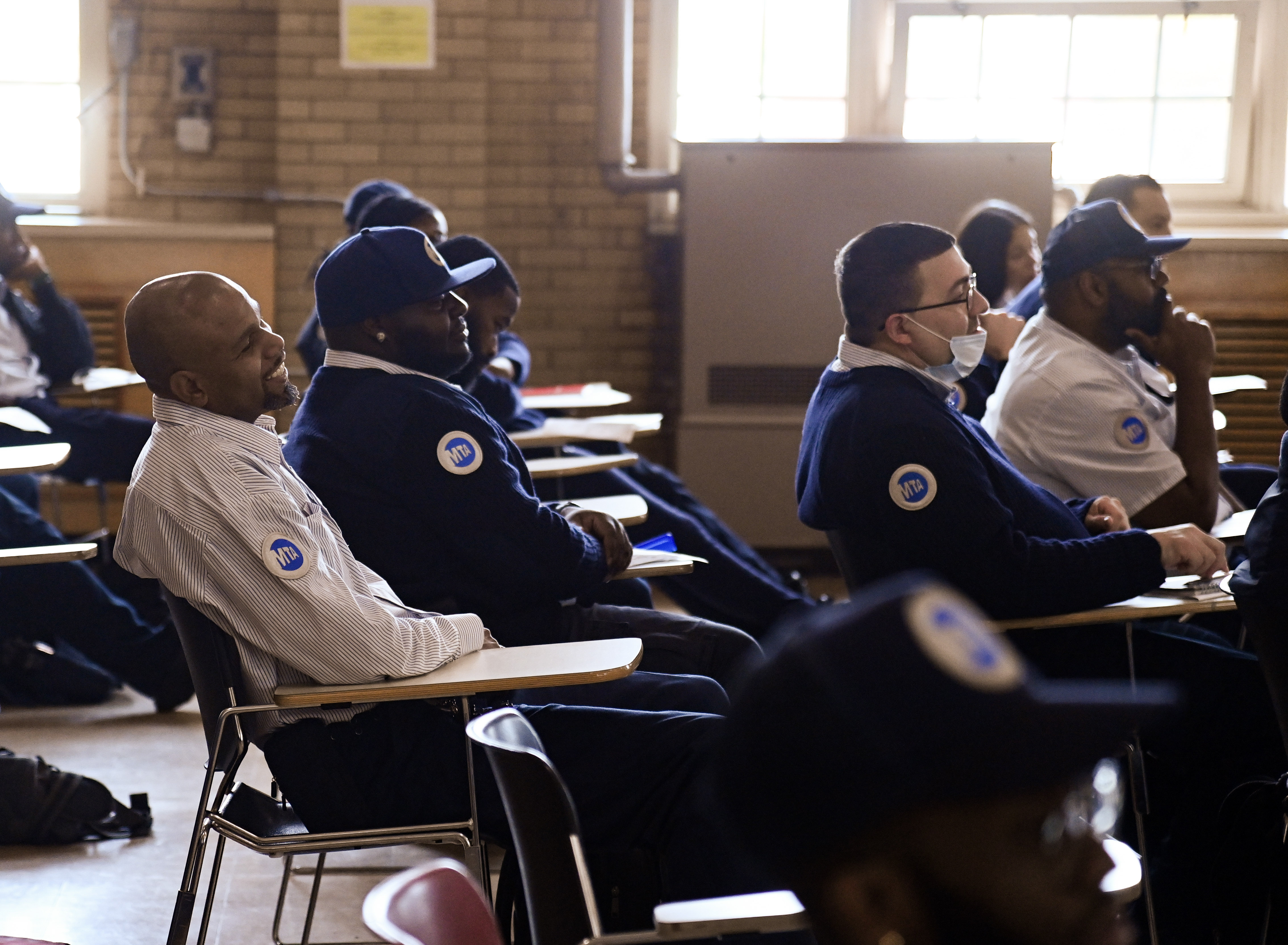Classes Accelerate Front Line Workforce Regrowth Following Pandemic-Induced Hiring Freeze
72 Operators and 40 Conductors Join Hundreds of Train Conductors, Train Operators and Bus Operators Who Completed Training in 2021 and 2022
View Photos from the Graduations
The Metropolitan Transportation Authority (MTA) New York City Transit (NYCT) announced the graduation of 72 new train operators and 40 new train conductors following their successful completion of training at the NYCT Learning Center in Brooklyn.
The graduations took place just days after the subway set a pandemic-era weekend ridership record on Saturday, Oct. 8, carrying 2,396,000 riders, constituting 73.4 percent of pre-pandemic levels, topping the previous pandemic weekend ridership record of 2,388,000 set two weeks prior.
These employees will help NYCT tackle crew shortage challenges and bolster the frequency of subway service. This marked the formal end of intensive training that began this spring.
"Riders are already seeing the benefits of our efforts to hire more train operators and conductors and deploy them to the subway lines that need them,” said New York City Transit President Richard Davey. “These new classes will ensure that public transit remains the fastest, cheapest and most environmentally friendly way to travel around New York City.”
“Returning our workforce to pre-pandemic levels remains a top priority to provide better subway service for New Yorkers,” said New York City Transit Senior Vice President of Subways Demetrius Crichlow. “Our improved recruiting and training efforts are making more trains available to customers.”
The new employees join the hundreds of bus operators, train operators and conductors who recently completed their training — part of a deliberate effort by the MTA to rapidly grow the number of bus operators, subway train operators and conductors. A hiring freeze, necessitated by a fiscal crisis that developed during the pandemic, depleted the ranks of train operators and conductors with many veteran workers retiring or leaving their frontline posts. Along with improved recruiting efforts and speeding up training for new employees, the MTA addressed the staff shortage by bringing back recently retired train operators, scheduling additional overtime and buying back vacation time.
